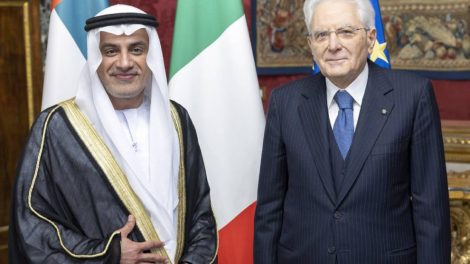Deconding the news. The hearing, titled “Chinese Influence in the EU: The Cases of Italy and Eastern Europe (Romania)”, was hosted by Senator Giulio Terzi di Sant’Agata, former foreign minister and current chair of the Senate’s EU Affairs Committee.
- The event was co-organized with Taiwan’s Doublethink Lab, Romania’s Expert Forum, and the Global Committee for the Rule of Law “Marco Pannella.”
- The debate drew on findings from the China Index 2024, one of the most comprehensive assessments of Beijing’s global reach, which tracks 101 countries across 99 indicators, from politics and technology to media and academia.
The Italian scenario. Influence recedes, vulnerabilities remain.
- According to the China Index, Italy has significantly reduced Chinese political and economic influence since withdrawing from the Belt and Road Initiative (BRI) in 2023.
- That decision, symbolic for Brussels, marked a decisive shift in Rome’s foreign policy away from Beijing’s orbit.
- But analysts warned that influence persists in universities, scientific research, and the media — areas still intertwined with Chinese institutions.
- Academic partnerships, joint research centers, and state-backed content-sharing agreements provide Beijing with soft entry points into Italy’s knowledge and information sectors.
What they’re saying:
- Giulio Terzi di Sant’Agata, the event’s host, urged vigilance:
- “We must trace and expose these attempts to infiltrate our democratic systems. The right to free information lies at the heart of the European project. Malicious interference and cognitive warfare by para-state actors threaten to distort our democratic reality, and we must respond with transparency and resilience.”
- Vincent Y.C. Tsai, Taiwan’s representative in Italy, highlighted how Beijing’s pressure tactics extend well beyond Asia: “Over 300 Chinese aircraft violate Taiwan’s airspace each month, but the pressure doesn’t stop there. It follows us abroad, including here in Rome.”
- He accused China’s embassy and consulates in Italy of serving as nodes of intelligence and influence operations, pointing to alleged Chinese “police stations” operating in Rome, Milan, Florence, Prato, Venice, and Sicily.
- Sorin Ionita, president of Romania’s Expert Forum, presented the China Index data
- “Chinese influence now spans academia, domestic and foreign policy, economy, and technology. It’s not limited to one sector — it’s systemic. The Chinese Communist Party uses diplomacy and innovation as international keys, but they come with high risks of cyber-espionage and human rights violations.”
- Senator Andrea De Priamo, chair of the Parliamentary Intergroup on Italy-Tibet, reminded the audience of the Tibetan experience: “The people of Tibet live under the most coercive form of Chinese influence. Their struggle should be a warning to the West about what unchecked power looks like.”
- Senator Cinzia Pellegrino (Fratelli d’Italia) added: “Chinese infiltration is everywhere, and we must also recognize Taiwan’s resilience. Today, the economy itself has become an instrument of international coercion, reaching deep into Europe’s strategic assets.”
- Giulia Pompili, journalist for Il Foglio, cautioned against the subtle normalization of Beijing’s narrativeswithin European discourse: “We are seeing the rise of a ‘sinically correct’ language, the linguistic adaptation of Chinese political framing. It’s already shaping debates on surveillance technologies and the recent espionage cases emerging across Europe.”
By the numbers. 101 countries assessed by the China Index 2024:
- 99 indicators across nine domains: politics, economy, foreign policy, academia, media, technology, military, law enforcement, and society.
- Italy’s score: 26.8 (−8.3 points vs. 2022).
- Strongest influence gains: Central America (+12.1), Sub-Saharan Africa (+8.2), South America (+7.3).
Between the lines China’s influence is adaptive. It retreats in regions with strong institutions, like Italy and Romania, but deepens in less regulated environments.
- The Index suggests that Europe is the only continent showing a net decrease in dependence on Beijing, reflecting broader de-risking policies, investment screening, and restrictions on Chinese 5G technology.
The big picture
Italy’s withdrawal from the BRI was a turning point, signaling a European pivot toward strategic autonomy and democratic resilience. But the challenge ahead is managing exposure without isolation:
- balancing trade ties with safeguards against authoritarian influence.
- As Senator Terzi put it, the task for Europe is clear: “To defend our democratic processes without closing our societies, to ensure freedom of information remains a shield, not a vulnerability.”
- For Beijing, Italy and Romania remain valuable gateways, corridors to European markets, regulations, and narratives.
- For Europe, they are test cases in the continent’s ability to resist, adapt, and define its own rules in an era of hybrid power competition.





